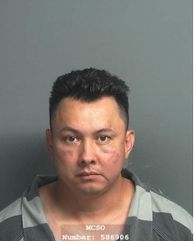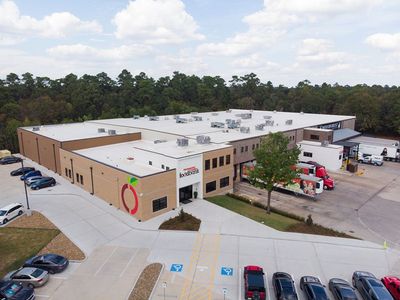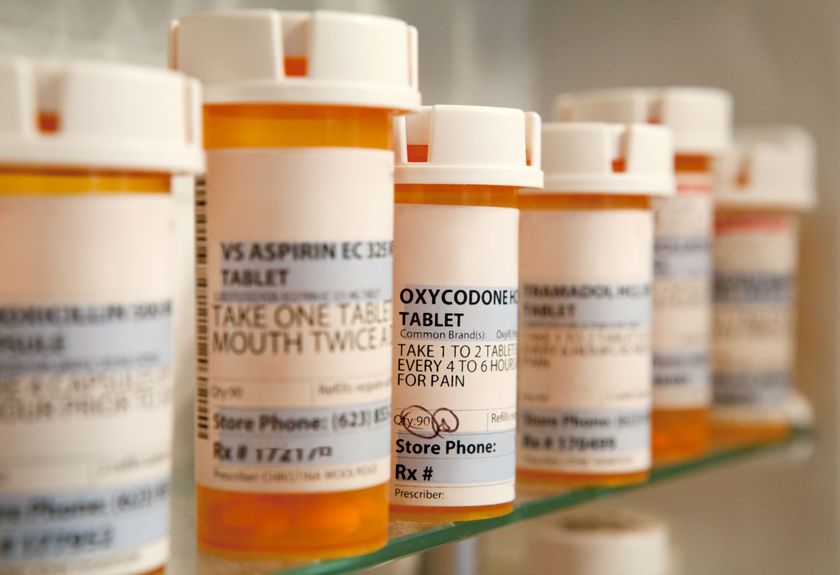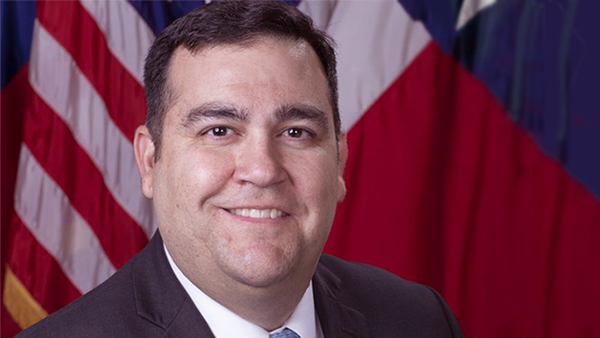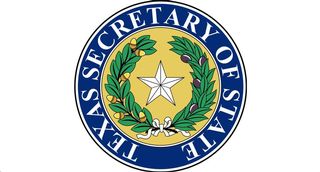- Sections :
- Crime & Public Safety
- Restaurants & Food
- Sports
- More
Categories
Report on Lone Star Groundwater Conservation District Water Use Fees
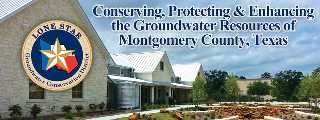
MONTGOMERY COUNTY, TX -- Lone Star Groundwater Conservation District (District) charges water use fees for permitted amounts. In 2015, the District charged $.06 per thousand gallons for groundwater authorizations in the Chicot, Evangeline, Jasper and Catahoula. In 2016, Lone Star increased its rate for the Chicot, Evangeline and Jasper from $.06 per thousand gallons to $.075 per thousand gallons. In 2018, due to litigation expenses, the District increased fees on the Chicot, Evangeline and Jasper from $.075 to $.105. The water use fees for the Catahoula have remained stable at $.06 per thousand gallons along with fees for agricultural use at $1.00 per acre-feet. Chapter 36 of the Texas Water Code specifically caps the District's water use fees for agricultural use at $1.00 per acre-feet and for other permitted uses at $.17 per thousand gallons.
All fees are payable to the District annually or quarterly (if requested). Prior to the institution of the Groundwater Reduction Plan (GRP) and reduction rule for large volume users, all permittees paid water use fees directly to the District. When the reduction rule and GRPs were put in place for large volume users, GRP Sponsors began collecting water use fees directly from their large volume participants and then remitting the collected fees to the District. The GRP Sponsors undertook this administrative function primarily as a courtesy to their participants and because some of the GRPs are based on economies of scale and charge their participants separate GRP fees. All other permittees pay water use fees directly to the District.
In addition to the Lone Star water use fees the San Jacinto River Authority (SJRA) voluntarily collects on behalf of its participants, SJRA charges separate GRP fees on both groundwater and surface water that each GRP Participant is required to pay to SJRA. In other words, all participants in the SJRA GRP who produce groundwater are responsible for Lone Star's water use fees (currently $.105 per thousand gallons) plus the SJRA groundwater GRP fee, which increases regularly and is currently $2.73 per thousand gallons. SJRA's surface water GRP fee is $3.15 per thousand gallons. The District has no part in the setting, invoicing, collection, or payment of separate GRP fees. Instead, the District invoices the GRP Sponsor directly for the amounts owed in water use fees for all of the GRP's Participants, and the GRP Sponsor collects payment directly from its GRP Participants and then remits payment in the aggregate to the District. The GRP Sponsor bills all participants separately for any GRP fees it assesses.
On June 28, 2019, the District received a letter from SJRA as the GRP Sponsor stating that it has withheld $226,091.30 from the quarterly payments SJRA collects and submits to the District for water use fees on behalf of SJRA GRP Participants. SJRA stated that the amount withheld is the amount it contends the City of Conroe has failed to pay SJRA for the District's water use fees. The District is currently working with Conroe to collect past due water use fees directly from Conroe.
The District has been working on new rules to regulate groundwater production to replace the statutorily invalid reduction rule and corresponding GRP requirement. The District hopes to have draft rules for publication before the end of the summer. In the rule revision process, the District has taken and will continue to take a serious look at whether GRP Sponsors should continue to collect and remit payment for their participants or if the District will require all permittees to make payment directly to the District as they have historically done. Lone Star Board President Webb Melder stated, 'Now that the reduction rule has been stricken, there is no requirement for large volume users to participate in a GRP and there will be no designation of or distinction between large and small volume users under the new rules. We will just have permittees. Since the reduction rule and GRP requirements are no longer part of Lone Star's regulations per the court order, it makes sense for the District to go back to having a direct relationship with its permittees on all levels from permit issuance to fee collection.' After rules are adopted, the District also plans to revisit the current water use fees and will evaluate whether the fees can be reduced.
SJRA's press releases continually state that its rate increases are due, at least in part, to 'regulatory uncertainty surrounding groundwater conservation rules set by the Lone Star Groundwater Conservation District.' The District's General Counsel has responded to SJRA's contentions that its rate increases are due to the District's regulatory uncertainty as follows. First, although Lone Star is undergoing a much needed rule revision, there is no regulatory uncertainty. Aside from the stricken reduction rule and GRP requirement, all of Lone Star's other rules are in full force and effect until changed, and all permittees, even large volume users, have valid and enforceable permits in place until reissuance and/or renewal. Second, SJRA's GRP fees and continual increases of same are within SJRA's sole control. Lone Star has no involvement whatsoever with GRP fees. Third, based on the GRP Review Committee's discussion at its May 20, 2019 meeting, decreased demand and increased expenses (not Lone Star regulations) are SJRA's main justifications for rate increases. SJRA invited the District's General Manager and General Counsel to attend the May 20 GRP Review Committee meeting to provide an update on the District. Another item on the agenda was the 'GRP Rate Study', which included a presentation by SJRA's financial consultants and an Operating Budget Presentation by SJRA's Matt Corley. The District's General Counsel and General Manager stayed for the entire meeting including the GRP Rate Study discussion. The District's General Counsel reported that according to the GRP Committee's own discussion at the meeting, the rate increases on the GRP fees are primarily for two reasons: (1) a decreased demand for water due to over-projections by users, SJRA rate increases, and weather; and (2) increased expenses related to repairs, legal fees in the GRP rate litigation, a rate increase on raw water, and increased reservation fees to the City of Houston. The minutes from the GRP Review committee meeting identify decreased demand and increased expenses as justifications for the rate increases.
The District's General Counsel would like to reiterate that the District has no control over SJRA's GRP Fees and that the GRP Review Committee has identified decreased demand and increased expenses as the basis for SJRA's rate increases. Over-projections by users, SJRA rate increases, weather, expenses for repairs, legal fees in the GRP rate litigation, rate increases on raw water, and increased reservation fees charged by the City of Houston have zero correlation with the District's current or future regulations.
All fees are payable to the District annually or quarterly (if requested). Prior to the institution of the Groundwater Reduction Plan (GRP) and reduction rule for large volume users, all permittees paid water use fees directly to the District. When the reduction rule and GRPs were put in place for large volume users, GRP Sponsors began collecting water use fees directly from their large volume participants and then remitting the collected fees to the District. The GRP Sponsors undertook this administrative function primarily as a courtesy to their participants and because some of the GRPs are based on economies of scale and charge their participants separate GRP fees. All other permittees pay water use fees directly to the District.
In addition to the Lone Star water use fees the San Jacinto River Authority (SJRA) voluntarily collects on behalf of its participants, SJRA charges separate GRP fees on both groundwater and surface water that each GRP Participant is required to pay to SJRA. In other words, all participants in the SJRA GRP who produce groundwater are responsible for Lone Star's water use fees (currently $.105 per thousand gallons) plus the SJRA groundwater GRP fee, which increases regularly and is currently $2.73 per thousand gallons. SJRA's surface water GRP fee is $3.15 per thousand gallons. The District has no part in the setting, invoicing, collection, or payment of separate GRP fees. Instead, the District invoices the GRP Sponsor directly for the amounts owed in water use fees for all of the GRP's Participants, and the GRP Sponsor collects payment directly from its GRP Participants and then remits payment in the aggregate to the District. The GRP Sponsor bills all participants separately for any GRP fees it assesses.
On June 28, 2019, the District received a letter from SJRA as the GRP Sponsor stating that it has withheld $226,091.30 from the quarterly payments SJRA collects and submits to the District for water use fees on behalf of SJRA GRP Participants. SJRA stated that the amount withheld is the amount it contends the City of Conroe has failed to pay SJRA for the District's water use fees. The District is currently working with Conroe to collect past due water use fees directly from Conroe.
The District has been working on new rules to regulate groundwater production to replace the statutorily invalid reduction rule and corresponding GRP requirement. The District hopes to have draft rules for publication before the end of the summer. In the rule revision process, the District has taken and will continue to take a serious look at whether GRP Sponsors should continue to collect and remit payment for their participants or if the District will require all permittees to make payment directly to the District as they have historically done. Lone Star Board President Webb Melder stated, 'Now that the reduction rule has been stricken, there is no requirement for large volume users to participate in a GRP and there will be no designation of or distinction between large and small volume users under the new rules. We will just have permittees. Since the reduction rule and GRP requirements are no longer part of Lone Star's regulations per the court order, it makes sense for the District to go back to having a direct relationship with its permittees on all levels from permit issuance to fee collection.' After rules are adopted, the District also plans to revisit the current water use fees and will evaluate whether the fees can be reduced.
SJRA's press releases continually state that its rate increases are due, at least in part, to 'regulatory uncertainty surrounding groundwater conservation rules set by the Lone Star Groundwater Conservation District.' The District's General Counsel has responded to SJRA's contentions that its rate increases are due to the District's regulatory uncertainty as follows. First, although Lone Star is undergoing a much needed rule revision, there is no regulatory uncertainty. Aside from the stricken reduction rule and GRP requirement, all of Lone Star's other rules are in full force and effect until changed, and all permittees, even large volume users, have valid and enforceable permits in place until reissuance and/or renewal. Second, SJRA's GRP fees and continual increases of same are within SJRA's sole control. Lone Star has no involvement whatsoever with GRP fees. Third, based on the GRP Review Committee's discussion at its May 20, 2019 meeting, decreased demand and increased expenses (not Lone Star regulations) are SJRA's main justifications for rate increases. SJRA invited the District's General Manager and General Counsel to attend the May 20 GRP Review Committee meeting to provide an update on the District. Another item on the agenda was the 'GRP Rate Study', which included a presentation by SJRA's financial consultants and an Operating Budget Presentation by SJRA's Matt Corley. The District's General Counsel and General Manager stayed for the entire meeting including the GRP Rate Study discussion. The District's General Counsel reported that according to the GRP Committee's own discussion at the meeting, the rate increases on the GRP fees are primarily for two reasons: (1) a decreased demand for water due to over-projections by users, SJRA rate increases, and weather; and (2) increased expenses related to repairs, legal fees in the GRP rate litigation, a rate increase on raw water, and increased reservation fees to the City of Houston. The minutes from the GRP Review committee meeting identify decreased demand and increased expenses as justifications for the rate increases.
The District's General Counsel would like to reiterate that the District has no control over SJRA's GRP Fees and that the GRP Review Committee has identified decreased demand and increased expenses as the basis for SJRA's rate increases. Over-projections by users, SJRA rate increases, weather, expenses for repairs, legal fees in the GRP rate litigation, rate increases on raw water, and increased reservation fees charged by the City of Houston have zero correlation with the District's current or future regulations.
Comments •

